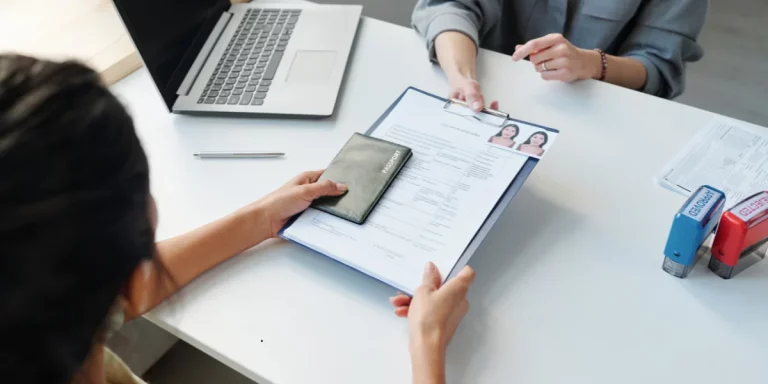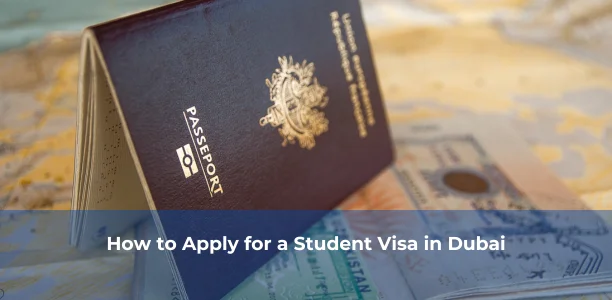
A Guide to Obtaining a Student Visa Abroad
Starting your journey to study abroad begins with understanding the essential steps to secure a student visa abroad. However, navigating the student visa process is often a daunting task for many. Whether you’re eyeing universities in the USA, UK, Canada, or Australia, obtaining a student visa is a crucial step in fulfilling your academic dreams. This guide walks you through the entire process, making it simpler and more approachable.
What Is a Student Visa?
A student visa is a document issued by a country that permits international students to enter, stay, and study for a specific period. Each country has its own requirements and procedures, so understanding them is the first step toward success.
How to Obtain a Student Visa Abroad: A Step-by-Step Guide
1. Understand Student Visa Requirements
Each country sets distinct rules for student visas, so it’s essential to explore the specific criteria outlined on the official immigration portal of your chosen destination. Some key elements to note include:
- Application forms and fees
- Proof of acceptance into a recognized educational institution
- Financial proof showing your ability to cover tuition and living expenses
- English proficiency test scores like IELTS or TOEFL
Tip: Consult with a trusted overseas education consultant like Reyna Overseas, one of the top student visa consultants in Ahmedabad, for personalized guidance.
2. Apply to Your Desired University
Before applying for a student visa, secure admission to a recognized educational institution. The institution will provide you with an acceptance letter, which is crucial for your visa application.
3. Prepare the Necessary Documents
The documentation required for a student visa typically includes:
- Passport valid for at least six months beyond your stay
- Recent passport-sized photographs
- Completed visa application form
- Proof of payment of visa fees
- Confirmation of Enrollment (CoE) from your university
- Financial documents, such as bank statements
- Academic transcripts and certificates
- Proof of language proficiency (IELTS/TOEFL)
4. Submit Your Visa Application
Most countries allow you to apply for a student visa abroad online. Ensure you double-check all forms and documents before submission. In some cases, you may need to visit the consulate or embassy for an in-person interview or biometric submission.
5. Attend the Visa Interview
The visa interview is a critical part of the process. Be prepared to answer questions about your study plans, financial situation, and post-study goals. Confidence and honesty go a long way during the interview.
6. Wait for Approval
The time it takes to process a student visa can differ greatly between countries. While some applications are processed within weeks, others may require several months for approval. During this period, keep tracking your application status online.
7. Travel to Your Destination
Once your visa is approved, finalize your travel arrangements. Ensure you have all essential documents ready for immigration checks.
Why Choose Reyna Overseas for Student Visa Assistance?
Reyna Overseas has earned a reputation as a leading expert in student visa abroad consultancy, making it a top choice for aspiring students in Ahmedabad. Here’s why:
- Expert Guidance: Their team provides end-to-end support, from university selection to visa application.
- Extensive Experience: Years of experience in helping students achieve their dreams.
- Personalized Services: Tailored advice to meet your unique needs.
- High Success Rate: Known for an impressive track record in visa approvals.
If you’re in Ahmedabad and looking for professional help, Reyna Overseas is the partner you need to make your study abroad journey seamless and stress-free.
Common Challenges and How to Overcome Them
1. Financial Proof Issues
Many students struggle to prove they have sufficient funds for tuition and living expenses. Work with your consultant to prepare accurate and complete financial documentation.
2. Visa Rejection
Visa denials often occur due to incomplete applications, missing documents, or inconsistencies during the interview. Reyna Overseas can help you avoid these pitfalls.
3. Tight Deadlines
Balancing application timelines for universities and visas can be overwhelming. Planning ahead and working with a consultant can simplify this process.
Tips to Enhance Your Student Visa Abroad Application Success
- Start Early: Begin your application process at least six months in advance.
- Be Honest: Always provide accurate and truthful information.
- Practice for the Interview: Rehearse common interview questions.
- Stay Organized: Keep all your documents in a folder for easy access.
Conclusion
Securing a student visa abroad is the foundation of your academic and career success on the global stage. By following this guide and seeking assistance from trusted experts like Reyna Overseas, you can navigate the process with confidence.
Ready to take the next step? Contact Reyna Overseas today and let them help you turn your dream of studying abroad into reality.




